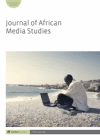
Today’s global job market is like … well, there’s a labour imbalance.
In the global South–Africa, Asia, Latin America and the Carribean–, there’s a workforce boom thanks to more people –young populations, high fertility rate, and better education.
In the global North, there’s a worker shortage due to fewer births and retiring baby boomers. This labour imbalance needs fixing.
However, moving skilled workers from the global South to fill the vacancies in the global North and meet the labour shortage in that part of the world isn’t that simple. People worry about too many outsiders coming in, and it’s causing some political drama.
But hey, challenges are just opportunities in disguise, right?
So, Stefan Schott and I worked on this research paper for the Global Partnerships Hub of the Friedrich Naumann Stiftung.
Full citation: Schott, S. and Shiundu, A. (2023). A new model for the globalization of the world of employment. Global Partnership Hub of the Friedrich Naumann Foundation.
Some folks turned up and said content moderation is the answer to fighting false information in Africa.
Wait, a minute, I said.
You are missing something. And thankfully, I got the space to put together my thoughts about the value of content moderation in dealing with disinformation in Africa, and the huge huge blindspots.
TL; DR: Content moderation isn’t the magic bullet. African governments can direct big tech to crackdown on problematic content, but that is in itself dangerous. Again, African governments have ZERO enforcement or follow-through capacity to competently or effectively ensure content is moderated on the unending borderless war on false information.
Solution: Collaboration with Big Tech, Fact-checkers, Media and Civil Society, an important first step to a conversation that can help make things better.
I mentioned AI (Artificial Intelligence), but then again… well, not quite.
Full citation: Shiundu, A. (2023). Content moderation and countering disinformation in Africa – The tough choices. In: Global Innovation Hub of the Friedrich Naumann Foundation for Freedom (2023). Taming the digital Realm: Global content moderation practices. Friedrich Naumman Foundation: Taiwan.

I wrote a Foreword for a book for my friends at Casa Africa in Spain about youth in Africa. They noticed that I worry about the future of Africa’s young people, so they asked me to share some of my thoughts.
I did.
Here’s how I introduced the issue:
“It is easy to see why, in a world oiled by neoliberalism, any discussion about Africa’s youth inevitably ends up being a session of mulling, assessing and predicting the economic benefits of the youth, their productivity, and their contribution to the well-being of society. The reason is simple: all countries in the continent are struggling with a youth bulge, and no one wants to have millions of young people in their country without work, or some meaningful engagement.
A quick scan of Africa’s development blueprint, the Agenda 2063, offers invaluable insight into the thinking within the policy sphere about the place of the youth in the continent. In more than half of the 24 mentions in which the word “youth” appears in the Agenda 2063 document, the words “potential”, “empowerment”, “transformative leadership” and “innovation” appear adjacent to it. It may all look like a proper diagnosis of the youth situation in Africa, but the subtext of helplessness or latency among the youth cadre is prevalent in the framing of the continental policy document prepared by the African Union. “
Full Citation: Shiundu, Alphonce. (2018). Youth in Africa: Policy Paradoxes and Viable Options. In: Del Felice, Celina & Onyeigwe, Obi Peter (eds) (2018). Youth in Africa: Agents of Change, pp11-14. Las Palmas: Casa Africa.
When I was studying Media and Development at the University of Westminster, I came across this eye-opening book by Jairo Lugo-Ocando. It has amazing insights about how the media–especially global media cover(ed) poverty, and so, I put down a book review.
Full citation: Shiundu, Alphonce. (2018). Book Review: Blaming the Victim: How Global Journalism Fails those in Poverty, Jairo Lugo-Ocando (2015). Journal of African Media Studies, 10(2), 221-223. doi: 10.1386/jams.10.2.221_5

